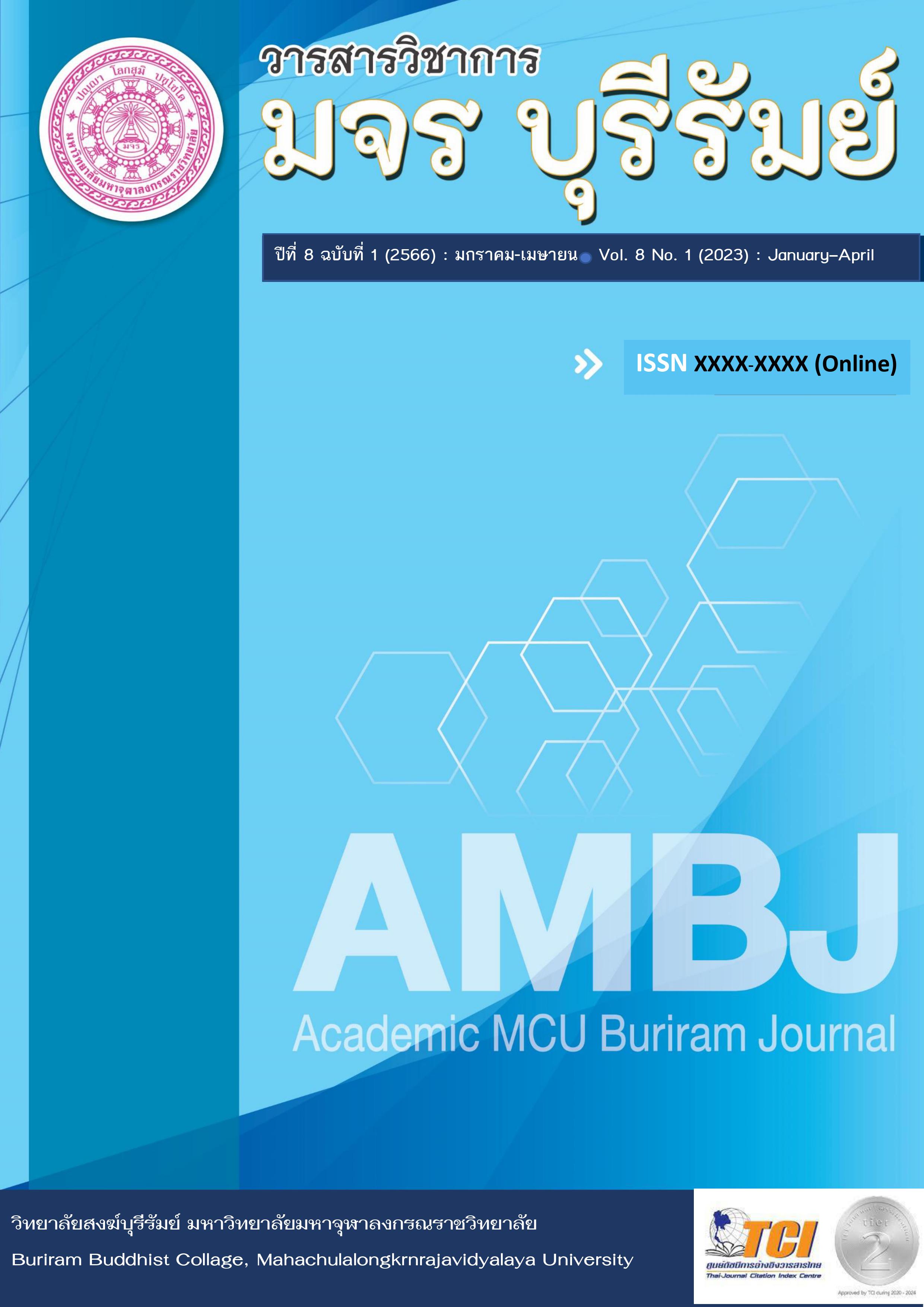An Application of the Sārānīyadhamma Principle in the Public Welfare Work of the Sangha Pendang District, Kedah State, Malaysia
Keywords:
Sārānīyadhamma Principle, Public Welfare, The Sangha in Peng Dang DistrictAbstract
The purpose of this research were: 1) to study the concept of public welfare of the Sangha in Peng Dang District, Kedah State, Malaysia, 2) to study the Sārānīyadhamma Principle (Dharma is a memorial to each other) appearing in the Buddhist scriptures, and 3) to apply the Sārānīyadhamma Principle in the public service work of the Sangha in Pen Dang District, Kedah State, Malaysia. It is qualitative research, focuses on document studies and in-depth interviews.
The research results found that:
1. The concept of public welfare of the Sangha in Peng Dang District, Kedah State, Malaysia. The public works is a work to help people and society who face various problems. It is the help of various objects and also with the right knowledge for a good life. It helps society to be self-reliant and change life for the better.
2. The Sārānīyadhamma Principle appeared in the Buddhist scriptures. It is a doctrine that makes us know each other's generosity, making others understand more for coexistence in unity, there are 6 things:1) Mettākayakamma (doing good to each other) 2) Mettāvacīkamma (saying nice things to each other) 3) Mettāmanokamma (thinking of good things for each other) 4) Sādhāranabhogī (share what is rightly earned) 5) Silasāmanyatā (Having equal virtue with fellow virgins both before and behind the scenes) 6) Dithisāmanyatā (have the same opinion).
3. An Application of the Sārānīyadhamma principle in the public welfare work of the Sangha of Pen Dang District, Kedah State, Malaysia. The Sārānīyadhamma principle help to remember each other and connect people with kindness by applying the Sārānīyadhamma principle in public welfare work in 5 issues, namely, mental development, community development, educational promotion, concerning the preservation of cultural traditions and helping to the victims, in order to make the operation more efficient.
References
ชำเรือง วุฒิจันทร์. (2541). การพัฒนากิจการคณะสงฆ์และการพระศาสนาเพื่อความมั่นคงแห่งชาติ. กรุงเทพมหานคร: กรมการศาสนา.
พระครูประภัสร์สิทธิคุณ (ประสิทธิ์ ปภสฺสโร). (2555). บทบาทของพระสงฆ์ด้านการสาธารณสงเคราะห์ของคณะสงฆ์อำเภอจตุรพักตรพิมาน จังหวัดร้อยเอ็ด. วิทยานิพนธ์พุทธศาสตรมหาบัณฑิต สาขาวิชาพระพุทธศาสนา. บัณฑิตวิทยาลัย: มหาวิทยาลัยมหาจุฬาลงกรณราชวิทยาลัย.
พระครูวิธานสุตาภรณ์ สมาจาโร (มั่นประสงค์). (2556). การประยุกต์ใช้หลักสาราณียธรรมในการปฏิบัติหน้าที่ของบุคลากรที่ว่าการอำเภอกงไกรลาศ จังหวัดสุโขทัย. วิทยานิพนธ์พุทธศาสตรมหาบัณฑิต สาขาวิชาพัฒนาสังคม. บัณฑิตวิทยาลัย: มหาวิทยาลัยมหาจุฬาลงกรณราชวิทยาลัย.
พระสมุห์สมพล ฐานวุฑฺโฒ (ขำพูล). (2559). บทบาทพระสงฆ์ในการพัฒนาชุมชนตามหลักสาราณียธรรมในเขตเทศบาล ตำบลหาดกรวด อำเภอเมือง จังหวัดอุตรดิตถ์. วิทยานิพนธ์พุทธศาสตรมหาบัณฑิต สาขาวิชารัฐประศาสนศาสตร์. บัณฑิตวิทยาลัย: มหาวิทยาลัยมหาจุฬาลงกรณราชวิทยาลัย.
มหาจุฬาลงกรณราชวิทยาลัย. (2539). พระไตรปิฎกภาษาไทย ฉบับมหาจุฬาลงกรณราชวิทยาลัย. กรุงเทพมหานคร: โรงพิมพ์มหาจุฬาลงกรณราชวิทยาลัย.
Downloads
Published
How to Cite
Issue
Section
License
Copyright (c) 2023 Academic MCU Buriram Journal

This work is licensed under a Creative Commons Attribution-NonCommercial-NoDerivatives 4.0 International License.
ทัศนะและความคิดเห็นที่ปรากฏในบทความวารสารฉบับนี้ถือเป็นความรับผิดชอบของผู้เขียนบทความนั้น ไม่ถือเป็นทัศนะและความรับผิดชอบของบรรณาธิการ





